Covid-19 updates
This page is no longer being updated. For the latest on Hand in Hand’s coronavirus response, click here.
Covid-19 has arrived in Hand in Hand’s countries of operation. Here, we provide updates on how we’re responding.
For information about how you can reduce your risk of infection, visit the World Health Organization website.
And to read a message from Hand in Hand International Chair Bruce Grant, click here.
Key updates
-
Teams in Afghanistan join fight against virus
-
Teams in Kenya join emergency response
-
Staff in Tanzania relay health information to members via mobile phone
Afghanistan
Hand in Hand is delivering soap, chlorine solution and crucial virus prevention training to 26,000 Afghans as part of the country’s official response to Covid-19 – with plans to reach 70,000 more.
The new project comes after a government lockdown in late-March banned gatherings of all kinds. In response, our usual business and skills training was suspended until 30 April – a date we’re keeping under constant review.
Afghanistan recorded its first confirmed case of Covid-19 on 24 February. Within weeks, Hand in Hand trainers were instructing members – many living in remote areas that public health messages don’t always reach – on virus prevention measures including handwashing, social distancing and more. Business and skills training continued during this time, with group meetings replaced by smaller home visits wherever possible. (For more on our initial response to Covid-19, click here.)
There are 1,092 confirmed cases of Covid-19 and 36 deaths in Afghanistan according to WHO figures, though the true number is expected to be many times higher. It’s also expected to keep rising as thousands of displaced Afghans cross the border every day from Iran, one of the hardest-hit countries in the world.
Kenya
In co-ordination with county governments, Hand in Hand is connecting with 86,000 members countrywide, providing support in two key areas: slowing/halting the spread of Covid-19 and ensuring food security for our members and their families.
With the country on lockdown, teams are trading Self-Help Groups for SMS’, motorbikes for mobile phones, reaching out to thousands of members individually to deliver key health messages (e.g. handwashing guidelines), signpost to vital health services, and counter fake news. At the same time, with food security a growing concern country- and indeed region-wide, they’re pointing agribusiness members towards alternative supply sources, signposting to Covid-19 relief opportunities such as soap-making and mask-making, and feeding back to government teams to identify communities in particular need. All this while restructuring repayment plans for members who’ve taken loans.
Behind the scenes, we’re ramping up efforts across several key projects, with work ongoing to: fully digitise our data from collection to analysis, allowing trainers to learn and adapt in real-time; develop the next generation Hand in Hand programmes, targeting alumni from previous projects for a second phase of higher income growth; and instruct staff on Hand in Hand Eastern Africa’s new training manuals, deepening our emphasis on women’s entrepreneurship.
Kenya recorded its first confirmed case of Covid-19 on 13 March. Two days later, local officials requested a pause on Hand in Hand group meetings as strict social distancing measures came into effect countrywide. Accordingly, and to play our part in halting the spread of the virus, Hand in Hand Eastern Africa temporarily suspended field activities until 1 July – a date we’re keeping under constant review.
There are 296 confirmed cases of Covid-19 and 14 deaths in Kenya, according to WHO figures.
Tanzania
Like in Kenya, staff in Tanzania are relaying virus prevention guidelines to rural, hard-to-reach members via mobile phone.
The country recorded its first confirmed case of Covid-19 on 16 March. Two days later, officials closed schools and suspended social gatherings. Accordingly, and to play our part in halting the spread of the virus, Hand in Hand’s team in Tanzania temporarily suspended field until 1 July – a date we’re keeping under constant review.
There are 255 confirmed cases of Covid-19 and 10 deaths in Tanzania, according to WHO figures.
Drink Pact Coffee. Support Hand in Hand
At Hand in Hand International, two things get us out of bed in the morning: women’s entrepreneurship and several cubic metres of coffee. So imagine how thrilled we are to partner with Pact Coffee, the UK’s finest purveyors of Direct Trade joe, delivered to your door.
Pact doesn’t just talk the talk when it comes to social purpose, they walk the walk – with a pep and sense of purpose that only the truly caffeinated will understand. That means embracing a Direct Trade model by working directly with farmers, paying anywhere from 25 percent to 125 percent above Fairtrade rates.
Lucky for Hand in Hand, it also means going an extra step further in honour of #InternationalWomensDay and donating £1 from every sale of a very special coffee during the month of March. That coffee is El Triunfo and it’s grown by Karla Baquero, the youngest member of a women’s co-operative in Colombia that supplies beans to Pact.
Hand in Hand teams up with Visa to empower women entrepreneurs
What happens when thousands of unemployed women in Africa’s biggest slums are empowered to take control of their finances and launch their own businesses? And when thousands more of the most promising micro-entrepreneurs in those same slums receive specialist training, financial services and mentor support to help level up their businesses – what happens then?
Thanks to a ground-breaking new partnership with Visa, the world’s leader in digital payments, we’re about to find out. Launched with a US $2.4 million grant from Visa, the three-year project aims to reach 10,200 members in two groups in the slums of Greater Nairobi, some of the biggest anywhere on Earth.
Financial inclusion, a prerequisite to small-business growth, will feature centrally throughout the programme, which aims to elevate both groups to a position where they can access the financial services they need.
Equality for each
This International Women’s Day, millions of individuals will converge on a collective theme: #EachforEqual. Hand in Hand’s partnership with Visa flips the equation, seeking equality for each of the 6,880 women who comprise 80 percent of the programme’s first group, our Launchpad.
Women living in Nairobi’s slums face restrictive norms and attitudes that keep them from earning their own incomes, controlling their own assets and making decisions for themselves. Hand in Hand’s package of Self-Help Groups, business and skills training, mentorship, financial inclusion and market linkages will empower our Launchpad members to overcome those barriers and increase their incomes
Scaling up our most promising micro-businesses
Our second group, the Accelerator, takes established micro-businesses to new heights. Here, we’ll select 1,600 pre-existing entrepreneurs for high-growth potential – including Hand in Hand’s most promising entrepreneurs from previous projects – with an eye to helping them scale up. Urban in nature, businesses in this category will range from retail shops and salons to garbage collectors, upcycled-waste producers and more. At least 50 percent will be owned and run by women.
Since our very first days in rural south India, Hand in Hand has prioritised a single demographic: women living in extreme poverty, defined since 2015 as those earning less than US $1.90 a day. So why, almost 20 years later, are we expanding to include our Accelerator class?
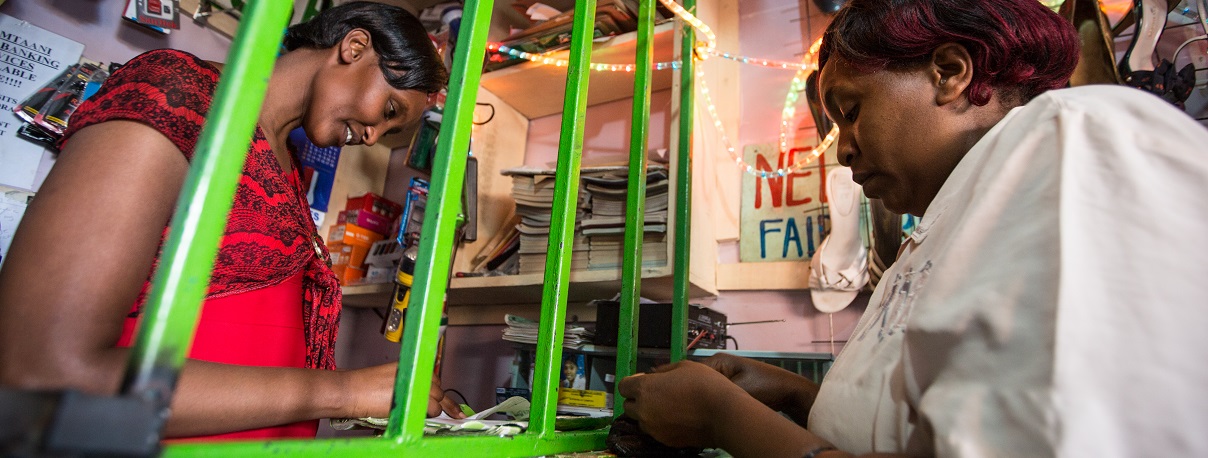
Dorcas serves a customer.
Small businesses lift up the communities around them by creating employment opportunities and enhancing livelihoods in a multiplier effect. But the answer is also strongly reflected in a 2019 survey of our members in Kenya, conducted by impact measurement leaders 60 Decibels. On the whole, found the survey, Hand in Hand’s members are pleased with our programmes: 95 percent said their quality of life improved after taking our training, and 51 percent said it improved “very much”.
Still, when researchers asked for improvements a number of key themes emerged. Eleven percent of respondents, many fitting the accelerator profile, said they wanted “expanded content” to help them keep learning and growing. For 34 percent, the answer was even simpler: “increased financing”.
Hand in Hand’s Enterprise Incubation Fund already provides finance to members at the Launchpad level. In keeping with our ethos of self-help, that finance is limited to one loan cycle of roughly US $200 – a bridge to other, more formal providers. By helping our Accelerator members scale up, we’re extending that bridge further, to a place where lines of credit are comfortably within reach. In other words, they receive “expanded content” – more training – and “increased financing” all in one go.
The programme will also see investment in Hand in Hand’s IT infrastructure to support digital program data and collection. Eventually, this technology will be scaled across all 23 of Hand in Hand Eastern Africa’s field offices, enabling programme managers to learn and adapt in real-time.
By the numbers
10,200 members recruited
75% of members women
6,020 micro-businesses created
1,600 micro-businesses expanded


For Afghan entrepreneurs, money talks
Hand in Hand’s programmes are already known to boost incomes, increase savings and “drastically reduce” poverty for Afghans and their families. Now, according to independent research, another impact can be added to the list: increasing their influence and decision-making in the home.
The finding stems from an ongoing joint-project in Afghanistan between Hand in Hand and CARE, designed to test what happens when programmes that target social empowerment are blended with programmes that target economic empowerment.
Six months into the 22-month programme, researchers from Global Impact Management Consulting found that 44 percent of members who receive both business training and social empowerment training already reported having more influence and decision-making power in the home. Perhaps more surprisingly, an almost equal number of members who only receive Hand in Hand’s business training – 38 percent – reported the same. Both numbers are expected to increase as the programme progresses.
“Ultimately, Self-Help Groups are about helping our members launch and manage their own micro-enterprises. But along the way, we see their communication skills and confidence improve as well,” says Hand in Hand International Programme Development Manager Isabel Creixell. “Add to that their own source of income, and power dynamics inside the household start to shift for the better.”
Researchers highlighted other interesting findings including that businesses that involved member’s families tended to outperform those that didn’t.
The report’s findings will have implications on our future programmes, which will seek to recruit young members’ mothers-in-law and other family members into Self-Help Groups, and train all members on taking a “family approach to business”.
The project concludes in November.
Study conducted 6 months into the 22-month project (27% complete)
Members taking only Hand in Hand business training who report increased decision-making in the home: 38%
Members taking business and social training who report increased decision-making in the home: 45%
New heights for Hand in Hand as ACT Charity of the Year
It started with a televised address from HRH Prince Charles and ended with a keynote speech from Sir Chris Hoy, Britain’s most decorated Olympian. But to our mind, the most enduring moment at last week’s Association of Corporate Treasurers’ Annual Gala came in between: when the ACT’s membership raised more than £63,000 to support a Hand in Hand village in Kenya.
The gala, Hand in Hand’s second as ACT Charity of the Year, surpassed last year’s on-the-night fundraising total, and will directly fund the creation of approximately 350 sustainable micro-businesses.
“Given our experience last year, we knew the ACT’s board and membership don’t hold back when it comes to charity,” said Hand in Hand International CEO Dorothea Arndt. “And yet, we’re completely bowled over. Thank you again to everyone involved. Because of you, life for hundreds of families will never be the same.”
Held at London’s Grosvenor House Hotel, the annual gala was attended by more than 1,500 treasury and finance professionals from throughout the UK.
Hand in Hand wins AGFUND prize
Hand in Hand has won the Prince Talal International Prize for Human Development.
Awarded by AGFUND, the US $400,000 prize recognised a Hand in Hand project in Sarepul Province, Afghanistan that created more than 9,700 microbusinesses and 13,300 jobs.
Hand in Hand’s submission – one of 166 from 78 countries – was selected as winner by a committee that included Professor Muhammad Yunus, Nobel Prize Laureate and founder of Grameen Bank, and Her Majesty Queen Sofia of Spain. Past winners include BRAC, Habitat for Humanity and the United Nations Development Fund for Women.
“From our board of trustees to our staff in Afghanistan who do such amazing work every day, Hand in Hand is honoured to receive this award,” said Hand in Hand International CEO Dorothea Arndt. “We thank AGFUND, and dedicate this award to each and every one of the 9,712 inspiring women and men of Sarepul Province who joined our project made it such a success.”
Held at the United Nations’ Palais des Nations in Geneva, Switzerland, the awards ceremony capped AGFUND’s eighth annual development forum, ‘Empowering Women through Financial Inclusion’. Hand in Hand International Trustee Dr John Barrett accepted the award.
Three smaller prizes were awarded to Kenya’s Dandora Dumpsite Rehabilitation Group, Rwanda’s Ministry of Youth and Egypt’s Ms. Nawal Mostafa, founder of the Children Female Prisoner’s Care Association.
All proceeds from Hand in Hand’s prize will go towards our programmes in Afghanistan.
How long do members’ jobs last in Kenya?
By teaching our members the skills they need to run their own micro-enterprises, Hand in Hand necessarily puts sustainability at the core of our work. What good is a livelihood if it doesn’t long outlast our support?
Recently, we returned to one of our projects in Kenya nine months after it concluded to check up on our members. Were they still saving? Were their enterprises still going strong? Here’s what we found.
- 100 percent of Self-Help Groups were still meeting regularly
- 92 percent of members were still saving (86 percent regularly)
- 80 percent of enterprises were still operational – and expecting to grow. (Identical to the new business survival rate in the US, according to the Bureau of Labor Statistics)
- 87 percent of jobs still existed
- Members had increased their incomes, on average, by more than 100 percent
All in all, then, some deeply encouraging results. To read the full sustainability report, click here. And for more information about our work in Kenya, visit our Kenya page.
Poverty ‘drastically reduced’ for Hand in Hand members: report
What do credit providers, local governments and the owners of a sweet potato processing plant have in common? They’re all “keen to learn from… and even replicate the success” of a major Hand in Hand project in Kenya, say independent researchers.
It’s not hard to see why. “Green” and “efficient”, the project has already “drastically reduced” poverty among Hand in Hand’s members – and it’s still only halfway done.
The project
In April 2016, Hand in Hand teamed up with the IKEA Foundation to help 43,200 impoverished women and young people in Kenya thrive as eco-entrepreneurs, while at the same time inspiring 4,800 future business leaders at Entrepreneurship Clubs in schools.
Two years later, as the project crossed the halfway point, Nairobi-based Brooklyn Economic Consulting (BEC) conducted an evaluation using data analysis, fieldwork and surveys with some 650 members, students and staff to measure our success and suggest improvements. Their results were reported against five criteria, widely adopted, set by the Organization for Economic Co-operation and Development (OECD).
Here’s what they found.
Relevance
Hand in Hand’s project is especially relevant to “reducing poverty levels, creating climate resilient enterprises [and improving] food security”, said evaluators. Alongside entrepreneurship education for schoolchildren, these are our primary goals.
We’re also “basically on track” to achieve our target of 80 percent women’s participation – BEC’s randomly selected sample group was 75.9 percent female – and remain “highly appreciated” among Self-Help Group members for our “critical role…in creating rural opportunities for youth and women”.
Effectiveness
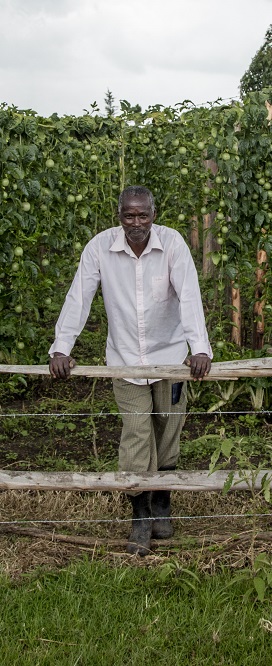
Smallholder farmer Richard Langat with his climate resilient passion fruit crop
Hand in Hand is “well on course” to achieving our targets, said BEC, citing savings and loans, as well as climate resilience, as key indicators.
“Beneficiaries have been able to access enterprise incubation fund [loans] of US $100,” said the report, adding that 25,587 members also have access to loans from group savings funds. At the same time, it added, those savings funds have surpassed two-year projections.
The project’s strong emphasis on climate resilience is also yielding results. Almost half of survey respondents told BEC they own a business outside of farming, suggesting lessons about income diversification – crucial to helping our rural members withstand climatic shocks such as floods and droughts – have hit home. Most common among them are shops (10.8 percent), food kiosks (8.9 percent), dressmakers’ (8.4 percent) and boda bodas (motorcycle taxis; 5.7 percent).
At the same time as they diversify members are adopting climate-resilient farming practices, such as collecting rain water, en masse. Some 66.7 percent of men and 68.6 percent of women run climate-resilient enterprises, said BEC, and almost all of them – 89.8 percent of women and 96.8 percent of men – have planted trees to reduce soil erosion.
Efforts to link members to renewable energy providers have also been successful. More than half of members, 58.65 percent, now use solar panels, said BEC, while another 21.5 percent use high-efficiency charcoal stoves called jikokoas.
Efficiency
Neither potholes nor presidential elections were a match for Hand in Hand’s fiscal discipline, said BEC, reporting the “overall programme to be efficient and all expenditures within allocated budget lines.
“Even under difficult circumstances that prevailed during programme implementation – i.e. the Kenya election period and poor road networks – the overall assessment is that the programme was efficient,” it concluded.
Impact
The figures are in, and even at this early stage, Hand in Hand’s members are launching enterprises in their tens of thousands. What’s more, they’re pulling their neighbours up with them. Halfway through the project, some 24,366 micro-businesses have been created. With an average of two jobs per enterprise – one owner and one employee – that’s 48,732 jobs in total.
Together, they were enough for BEC to declare that “the programme has contributed to the reduction of poverty rates in Embu, Bomet, Homa Bay and Busia” – all four of the project’s operating counties.
“The programme has also demonstrated achievement of anticipated impacts in terms of… the group’s function such as social cohesion, improved social networks [and] nutritional security,” it said.
Entrepreneurship Clubs, designed to promote self-employment and climate resilience among school-age children, are also having an impact. Thirty percent of girls and 21.7 percent of boys told BEC they wanted to be entrepreneurs, not salaried workers, when they finished school. Across the board, almost 75 percent showed they understand how climate change will affect households and businesses in the future.

Lesson time for the Tarakwa High School Entrepreneurship Club
Sustainability
Two areas in particular augur well for the project’s success after Hand in Hand moves on, said BEC. The first is widespread use of climate resilient farming practices – soil conservation, drought-resistant crops, harvesting rain water and the like – designed to help members stand up to a changing climate, now and for years to come. The second is higher-than-planned group savings and loans, a strong indication that Self-Help Groups will continue to meet and, crucially, provide access to finance.
Still, said BEC, more steps need to be taken if the project’s sustainability is to be ensured.
Recommendations
It takes a village to raise a child – and an entire ecosystem of private, public and third sector stakeholders to support a thriving enterprise.
“Hand in Hand should strengthen linkages… with other actors in the agricultural and non-agricultural value chains,” said BEC. “A multi-stakeholder platform comprising the government, private sector and value chain actors can bear even better results.” Better still, it continued, would be adding banks, microfinance institutions, and savings and credit organisations to the mix.
Having already set up member co-operatives – made up of several Self-Help Groups and designed to help members buy and sell in bulk, as well as gain access to bigger markets – Hand in Hand is hiring two technical advisers to help develop a more thoroughgoing market linkage strategy.
Partnering with banks and microfinance institutions, however, is less clear cut. In order to borrow from these formal lenders, our members would first have to sign up for Kenya’s equivalent of a national insurance number. Having done so, they would then be required to file annual tax returns – online, through a series of complicated forms, regardless of income, and facing fines of KES 20,000 (US $200) for non-compliance. For rural, often illiterate members who lack access to the internet, the results would almost certainly be disastrous. That’s why instead of reaching out to formal lenders, we’re doubling the amount of credit available to members through Hand in Hand’s own Enterprise Incubation Fund, to KES 20,000 (US $200) from KES 10,000 (US $100).
By the numbers
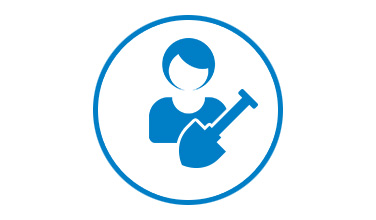
76% of members are women
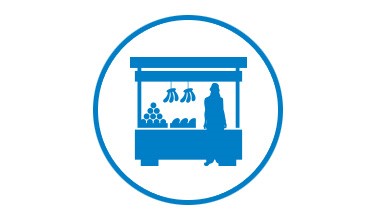
24,366 micro-enterprises
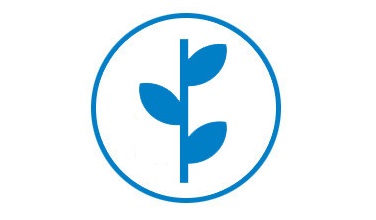
67% of enterprises climate resilient
Hand in Hand named ACT’s Charity of the Year for 2nd year running
It’s the partnership so nice we’re doing it twice.
For the second year running, Hand in Hand is proud to announce our selection as the Association of Corporate Treasurers (ACT) Charity of the Year.
The announcement follows a successful partnership in 2018, which saw the ACT’s members fund their own Hand in Hand Village Programme in Kenya. Once again, fundraising efforts will culminate in the ACT Annual Dinner, this year scheduled for 13 November at the Grosvenor House Hotel in London.
“In 2018, we were honoured to be the ACT’s Charity of the Year. In 2019, we’re doubly honoured. Here’s to another successful ACT Annual Dinner funding more life-changing business training on the ground,” said Hand in Hand CEO Dorothea Arndt.
Hand in Hand are looking for volunteers to help us on the night, attending the dinner to speak with interested ACT members about our work. To learn more about how you can help, please email Hand in Hand Head of Media Ann Dickinson.
Hand in Hand partners with Cartier Philanthropy on women’s economic empowerment
A new joint-project between Hand in Hand, Cartier Philanthropy and the International Center for Research on Women (ICRW) is boosting women’s economic empowerment in Tanzania by involving a group that – on this subject, anyway – almost always goes overlooked: men.
Launched this month, the programme aims to train 600 women to create and manage their own enterprises while changing attitudes that stop them from earning an income in the first place. When the project concludes in 2022, the lessons we learn will feed into a ‘male engagement toolkit’ being developed by ICRW, Cartier Philanthropy and other partners and shared sector-wide. Not only will Hand in Hand’s members benefit, but a potential 10.5 million Self-Help Group members worldwide.
The challenge
Any expert worth their salt will tell you – almost reflexively, at this point – that women are crucial to development. “When you invest in a woman’s empowerment it has a ripple effect, helping families, communities, and countries achieve long-lasting benefits,” says the Bill and Melinda Gates Foundation. Only recently, however, has the sector embraced the idea that in order for women’s economic empowerment to reach its full potential, men will need to buy in.
Tanzania is a perfect case in point. Although women here comprise 52 percent of farmers, they are less than half as likely as men to get paid, according to DFID-funded research group K4D. In fact, says a K4D report, most husbands prefer their wives to do unpaid domestic work than to earn an income outside the home. One result is that few women have bank accounts, collateral or social networks – prerequisites for starting a business.
Poverty in Tanzania is complex and multifactorial. But if women’s fortunes in this country of 57 million are to fully transform, so too must the attitudes that restrict them. So too, in other words, must the attitudes of men.
The project
Hand in Hand’s joint-project with Cartier Philanthropy and ICRW is designed both to help kickstart and learn more about that transformation. By the time the project is complete, 300 women will receive our usual livelihoods training, along with specialised training in women’s economic empowerment. Think lessons about earning and spending their own money.
We’ll also recruit 300 men – those same women’s husbands, fathers and brothers – to undergo livelihoods training of their own. Just like their female counterparts, men will also receive gender-specific training developed in partnership with ICRW. But here, the focus will be squarely on shifting their perceptions about women’s role in income generation – and their own in domestic labour. At the same time, we’ll reach out to the community more broadly, working with grassroots groups and others to shift norms around men’s and women’s roles. And to bolster the reliability of our results, we’ll recruit a comparison group of 300 women who receive livelihoods training only.
Among women, we aim to see a 20 percent increase in net household income, along with marked increases in decision-making and mobility. Among men, we aim to see a tangible change in perceptions and behaviours, including support for women’s enterprises and more time spent on domestic labour.
By the numbers
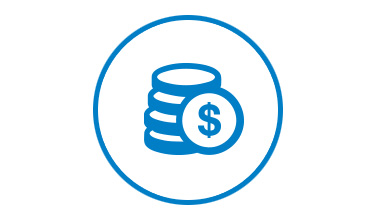
20% increase in income
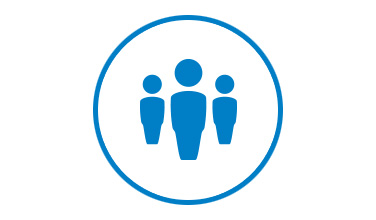
Increase in women’s mobility
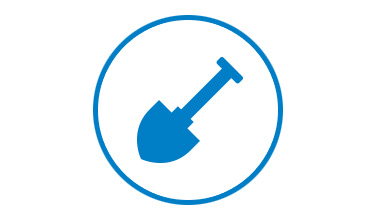
Increase in men’s domestic labour
